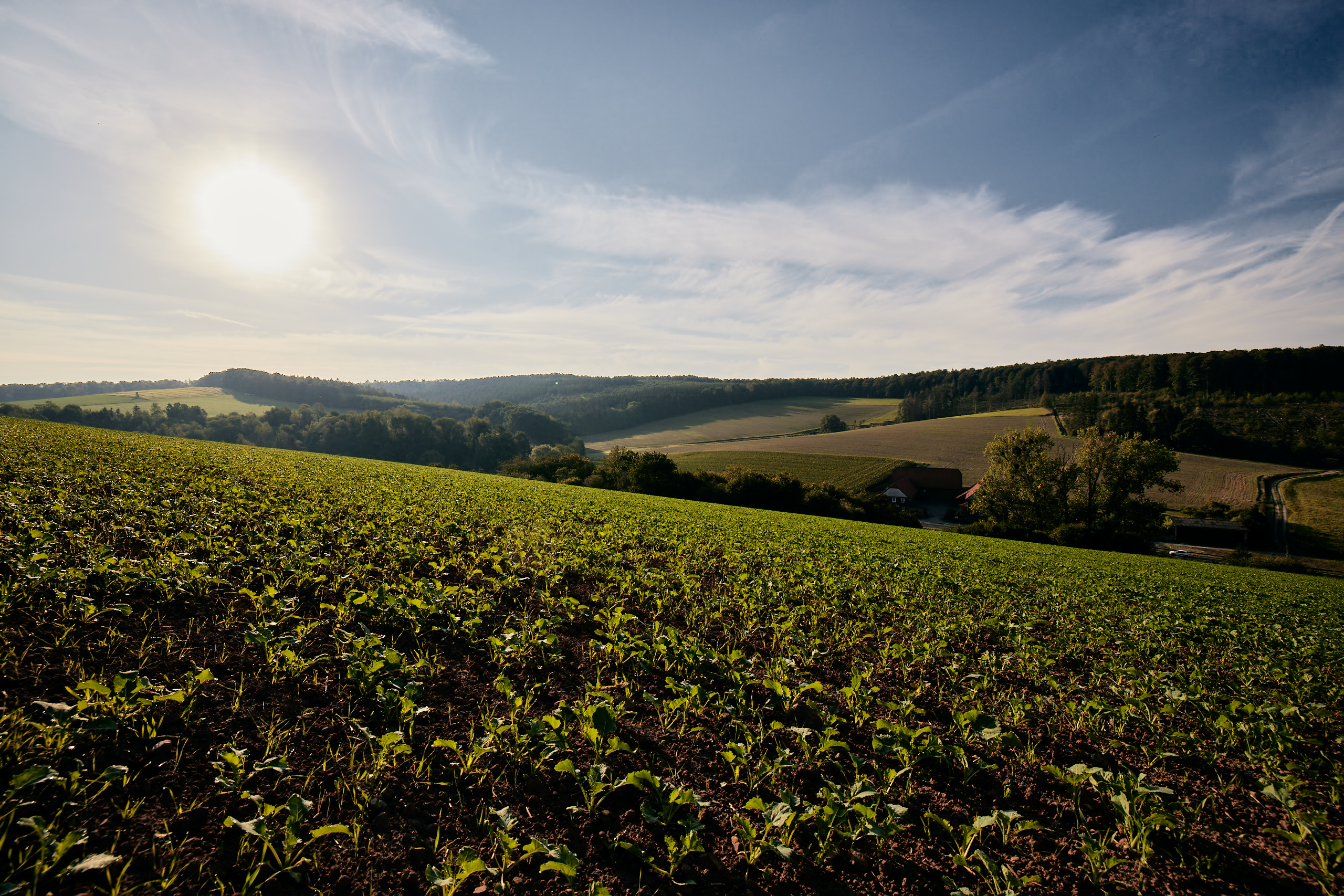Corn4FUTURE – A champion in resource use efficiency
The European Green Deal and the Farm to Fork strategy have set clear targets for sustainable farming in Europe, including a 50% reduction in the use of chemical plant protection. The seed sector continues to act as a key solution provider, contributing greatly to sustainable agriculture. Corn, requiring minimal plant protection, lowers production costs and reduces environmental impact, making it an excellent choice for sustainable farming practices.
Corn is very efficient in its water and nitrogen use
Heat and drought are major stresses impacting crop growth, development, biomass productivity, and grain yield. Corn exhibits high water use efficiency and drought tolerance, ensuring stable yields even under water stress. It requires only 100-300 liters of water to produce 1 kg of dry matter, demonstrating more efficient water use compared to other crops (Source: Deutsches Maiskomitee e.V. (DMK), 2024).
Nitrogen is an essential component of all enzymes and is therefore necessary for plant growth and development. Corn is very efficient in its nitrogen use. It needs 20 kg nitrogen per 10,000 mega joule net lactation - about 25% less nitrogen use than other crops (Source: DMK, 2024). To further advance nitrogen use efficiency, KWS is developing "low input varieties" of corn. These varieties are optimized to use nitrogen more efficiently, ensuring robust performance under low input conditions and reducing the need for additional nitrogen inputs.
Both biomass production and grain yield production can only grow from available nitrogen. Nitrogen is, besides water, light and temperature, the main driver for plant growth. However, certain genotypes can produce more yield, from less nitrogen.
Closer look: What´s in for sustainability?
Sustainability starts with the seed
Contact







